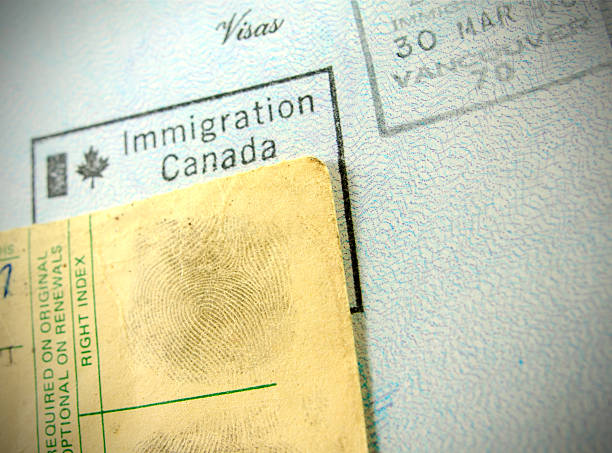Immigration
UK/US Family Visa For Africans – Options and How to Apply
Navigating the world of visas may be difficult, especially when seeking to reunite with family members living abroad. A family visa is an important tool for facilitating this reunification.
On this page, we define a family visa, present examples from several nations, and lead you through the overall process of obtaining one.
What Is a Family Visa?
A family visa is a document issued for family reunification in a foreign country. To be eligible for a family visa, you must have a family member, such as a spouse/partner, parent, sibling, or kid, who is already in a foreign nation and wants to join them.
Typically, family visas are categorized into different types based on the relationship between the visa applicant and the family member who is already in the foreign country. Common categories of family visas may include:
- Spouse Visa: This type of visa allows a person to join their legally married spouse in a foreign country.
- Fiancé(e) Visa: This visa is for individuals who are engaged to be married to a citizen or legal resident of the foreign country and wish to marry and reside there.
- Parent Visa: Some countries offer visas for parents to join their adult children who are already residents or citizens of that country.
- Child Visa: This visa category allows minor children to join their parents in a foreign country. It can also include adult children, depending on the specific country’s policies.
- Sibling Visa: In some cases, siblings can apply for visas to join their brothers or sisters who are residents or citizens of a foreign country.
- Extended Family Visas: Some countries have provisions for extended family members, such as grandparents, aunts, uncles, and cousins, to join their relatives under certain conditions.
The application process for family visas typically involves demonstrating the genuine nature of the family relationship, meeting financial requirements, and adhering to specific documentation and eligibility criteria.
Additionally, some countries may have waiting periods, quotas, or processing times for family visa applications.
Examples of family visas
Family visas vary based on the country, the sponsoring relative’s status, and the nature of the relationship.
Here are a couple of examples:
- Family-Based Immigrant Visas in the United States (IR and F Categories): These visas are only available to foreigners who have a close family member who is a US citizen or a lawful permanent resident. The IR (Immediate Relative) visa category is for immediate relatives of US residents, whereas the F category visas are for more distant family links.
- UK Family Visas: The UK visa policy covers several different types of family visas, such as spouse/partner visas, parent visas, child visas, and visas for relatives who require long-term care.
- Australian Family Stream Visas: These visas are intended for Australian citizens, permanent residents, and qualified New Zealand citizens who wish to bring family members to Australia to live with them. Partner visas, child visas, and parent visas are among the options.
- Schengen Family Reunion Visa: This visa allows non-EU/EEA nationals to visit family members living in any Schengen Area country.
How to Apply for a Family Visa
Acquiring a family visa entails a set of stages that may differ slightly based on the laws of the issuing country.
To get you started on applying for a family visa, here’s a general guide:
Verify Eligibility: Assess your eligibility depending on your relationship with a citizen or permanent resident of the destination country.
The application process normally entails filling out an application form and presenting supporting papers such as birth certificates, marriage certificates, evidence of relationship, and so on.
After examining your application, the consulate or embassy will usually schedule an interview with you. The visa officer will take this opportunity to confirm the information you supplied and determine your eligibility for the visa.
Approval: If your application is approved, you will be given a family visa, which will allow you to live and often work in the destination country.
Obtaining a family visa can be a difficult and time-consuming process with numerous elements. As a result, it’s usually a good idea to double-check the visa criteria before you begin the application process.
This type of document may take many weeks to be issued. As a result, we always recommend that you begin the procedure well in advance of your anticipated departure date.
FAQS
How Long Does a Family Visa Take to Process?
The processing time for a family visa ranges from one to two years. Some nations, such as Australia, may allow you to stay in the country while your visa is being processed; however, this depends on the sort of family visa you have.
What Is the Cost of a Family Visa?
Fees for a family visa can range from $160 to $1,500. Fees will vary depending on the kind of visa and any other administrative expenditures.
How Long Is a Family Visa Valid?
Your family visa is often provided for the same period as your partner’s original visa—between five and ten years—and if your partner qualifies for citizenship, you do as well.
Can You Work on a Family Visa?
With a family visa, you can work and study. However, you should keep in mind that some countries may limit the number of working hours and study programs you can pursue while on a family visa.
What Happened to My Family Visa?
Your family visa application may be denied for one of the following reasons:
- Your relationship with a member of your family is invalid.
- You and a family member do not have enough money to cover the cost of your stay.
- On your application form, you lied.
- You committed a heinous crime.
Conclusion
A family visa is a legal document that permits individuals to reunite with their close family members who are residing in a foreign country.
This type of visa is essential for maintaining family ties across borders and promoting family unity.
Family visas are typically categorized based on the familial relationship between the applicant and the family member already in the foreign country.
Spouse visas allow married couples to live together in the host country, while fiancé (e) visas enable individuals engaged to citizens or residents of the host country to marry and settle there.
Parent visas facilitate parents’ reunions with their adult children living abroad, ensuring family support and care. Child visas are designed to keep families together by allowing minor children to join their parents in a new country.
Sibling visas and extended family visas cater to other close relatives, fostering strong family connections.
The application process for family visas involves rigorous documentation, proof of a genuine relationship, and adherence to specific financial requirements. Immigration laws and regulations governing family visas vary widely by country, and they may change over time.
Staying informed and seeking legal guidance when necessary is crucial for a successful family visa application, ultimately allowing families to share their lives and experiences across international borders.
Family visas play a pivotal role in maintaining the bonds of kinship in an increasingly globalized world.





